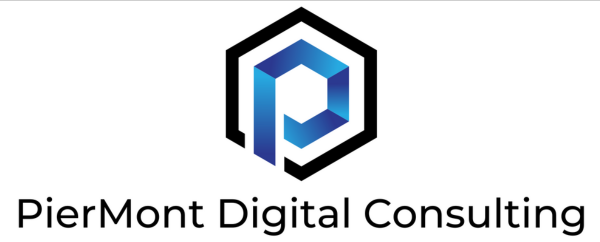
Change Management


Medium sized organisations face several pressing issues when implementing regulatory shifts, digital disruption, and AI-driven change. One of the big differentiators to delivering business benefits is how to engage their key stakeholders and wider ecosystem on the journey of change. Piermont’s Change Management approach delivers practical solutions to reduce stakeholder resistance and build buy-in, aligns and supports leadership, as well as builds sustainability that lasts way beyond go-live.
We partner with organisations to build change strategies that work. Whether you’re leading a digital transformation, restructuring teams, or fostering a culture shift, we provide tailored solutions to
Reduce Employee Resistance and ensure Engagement – Resistance often stems from fear of the unknown or job loss, as well as a lack of involvement in decision-making. Our stakeholder engagement strategy includes early involvement, transparent communication, and participation in decision-making which helps employees feel valued and more open to change. Change champions—influential employees who advocate for change, which supports a smoother transition.
Lack of Leadership Buy-in and Alignment – If leadership is not fully committed or aligned, change efforts lose momentum. At Piermont we co-create and implement a sponsorship roadmap, where senior leaders receive coaching on their role in leading change, ensures they actively support and model the change envisioned. Regular alignment meetings and leadership training reinforce their commitment.
Poor Communication Strategies – Ambiguous or inconsistent communication creates confusion and mistrust. We lead the development of a communication plan that tailors messages to different audiences, provides clear objectives, and offers regular updates that ensures employees understand why change is happening and how it impacts them. Two-way communication channels, such as town halls and feedback loops, further enhance engagement.
Inadequate Training and Support – Employees need the right skills and confidence to adapt to change. Our team will design a structured training and capability-building programme to ensures employees receive hands-on learning opportunities before, during, and after implementation. We support the training with job aids, e-learning modules, and continuous coaching to strengthens adoption.
Cultural and Behavioural Shifts – Changes often require new ways of thinking and working, which can be difficult to embed. Our unique approach delivers a culture transformation framework that integrates change into organisational values, rewards desired behaviours, and reinforces them through storytelling, role modelling, and management / peer recognition encourages long-term adoption.
Change Fatigue and Overload – Employees facing multiple simultaneous changes programmes or projects may feel overwhelmed and disengaged. At Piermont we offer a unique change portfolio management approach which prioritises, and sequences change initiatives to prevent overload. Phased implementation, change impact assessments, and well-paced transitions help maintain productivity and morale across all stakeholders.
Lack of Measurable Outcomes and Accountability – Without clear success metrics, it’s difficult to track progress or demonstrate value, especially in the people dimensions of change programmes. We partner with organisations to establish key performance indicators (KPIs), and success metrics linked to business outcomes ensures accountability. Regular pulse checks, surveys, and feedback sessions allow for course correction and reinforcement where needed.
Technology Adoption Challenges – Many organisations struggle with system rollouts due to poor adoption rates. Our change approach delivers a user adoption and reinforcement strategy that includes pilot testing the new solution with key stakeholder communities, extensive support for super-user networks, and post-implementation support (such as teams, management and leadership coaching and user feedback mechanisms) ensures employees gain confidence in using new systems.
By proactively addressing these challenges with structured change management strategies, organisations can drive smoother transitions, enhance adoption, and ensure long-term success in their change initiatives
Check out the other services we offer:
Cyber Security
We offer Cyber Security Assurance consulting, helping organisations to implement practical Information Security Governance and Risk Management capabilities. We also help our clients to develop the necessary policies and procedures necessary to align with industry standards: from Cyber Essentials to ISO27001 and NIST, recognising that each implementation will be unique to each client.
Consultancy
We offer management consulting services across the full transformation lifecycle, from strategy development through to delivering large-scale change programmes.
We tackle our clients’ most complex challenges, helping them to shape and implement change that delivers real results.



